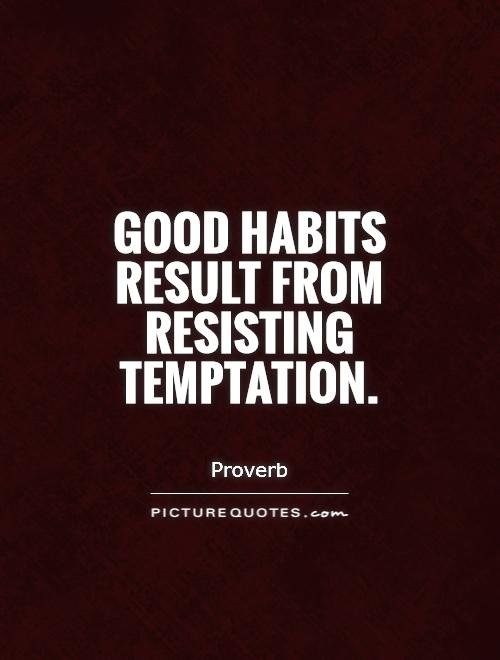Self-Control and Happiness: You need more, not less.
In 2014 a group of researchers, Wilhelm Hofmann, Maike Luhmann, Rachel R Fisher, Kathleen D Vohs. and Roy F. Baumeister, looked to answer a nuanced question: are people with high self-control happier than those who give into their impulses? They looked at happiness in the moment, affect happiness, and over time, life satisfaction, using a self-appraisal technique.
Trait self-control (TSC) is defined as, the ability to delay gratification, resisting short-term temptations in order to meet long-term goals. Something we can all use a lot more of around the 1st of the year.
When you look at the long-term effects of low self-control you can start to see how giving into temptation, over time, can lead to some pretty big upsets in life. Unhealthy eating, lack of exercise, procrastination, chronic impulse buying, and academic failure don’t happen overnight. Temptation can eat away at our goals bit by bit. But, this doesn’t necessarily mean that high self-control is better.
We often see media representations of people with high TSC rushing from one task to the next. Unable to enjoy the moment and appreciate the world around them. The researchers cheekily named this group, the “Puritan hypothesis” in regards to their “straightlaced killjoy” nature that likely helped to found one of the world’s greatest civilizations. That would be America, for those of you wondering.
At the other end of the high TSC spectrum we have those greater in momentary happiness due to the ability to control their emotions, minimizing bad feelings and promoting positive ones, and managing to reduce or eliminate temptation, reducing guilt down the road. The total of this momentary happiness leads to higher life satisfaction.
Finally they assumed that high TSC could improve in-the-moment regulation of emotions and increase affect happiness. But these people would hold higher standards for themselves and expect more from life. So much so that they could never be satisfied.
A focus of the study was that of conflicting goals. Primarily vice-virtue conflict, a piece of cake or a bag of carrots, time spent writing a blog post or watching another episode of GoT. They also looked at goal conflicts. Goals that were weighed equally (meeting your partner for a one year anniversary or staying late to secure a promotion) to see if people with high TSC were better at managing difficult decisions.
The first study revolved around momentary happiness, life satisfaction, and self-control in three surveys. I encourage you spend the few minutes to take them. I did. And I’m happy to say I’m just above average in each.
The results showed that people with higher TSC reported higher subjective satisfaction with life and higher momentary happiness. This means the Puritan view on TSC is probably not true. And, that high TSC is related to positive emotion and subsequently a sense of satisfaction with life.
In the second study the focus shifted to desire-goal conflicts with the assumption that persons high in TSC would experience less conflict and have to exert less self-control.
Again, high TSC correlated with greater affect and life satisfaction. The paper suggests that high self-control facilitates momentary happiness by helping people behave in ways that reduce mental conflict and prevent emotional distress. While poor self-controllers fail at striking a balance, leading to undesired outcomes and lower life satisfaction.
The third study looked after the differences between desire-goal conflicts and similarly valued goals. As expected high TSC reigned supreme when focusing on temptations, but for equally weighed conflicts, strong self-controllers saw no significant improvement. The research group gave the following explanation,
“Self-control should be seen as a tool or resource, not a reason to act, making it more helpful in vice-virtue conflicts than conflicts between equally important outcomes. In other words, when choosing between spending time with your family or friends you need a reason to do one of the other rather than a tool to resist temptation.“
High TSC has been linked with numerous positive life aspects, from occupational success to desirable social behavior, and better physical and mental health. All of which help to contribute to positive life satisfaction. This research clearly shows that the positive effects of self-control can be felt just as well in the moment.
I'm currently working to build a retirement account through investing, and I often have to make decisions around spending because of this. If I get another drink at the bar, or another pair of pants, I can't use that money to invest. It's a real time trade-off that serves as an example of the above research. If I spend now, I'll increase my happiness and possibly, short-term utility. But, in the long-run, I'm hindered. I've got less money to spend in the future, at a time I potentially need it most.
People often search for the key to happiness and satisfaction in life. It’s possible that one trigger for happiness is resting in our own ability to snuff out temptation when it hurts us most and to give in only when we need to recharge. This approach helps us to live fully in every moment, without looking back in regret at poor choices with long-lasting impacts.
Please let me know how you feel about your own temptations and self-control!


Hi! I am a content-detection robot. This post is to help manual curators; I have NOT flagged you.
Here is similar content:
http://www.diffuselearning.com/#!SelfControl-and-Happiness/c21kp/56cd3e280cf29064e5ef6ca3
NOTE: I cannot tell if you are the author, so ensure you have proper verification in your post (or in a reply to me), for humans to check!
Yup, that's my old website. The link you've given is broken and the content will come down shortly.
Exactly how I feel. You need to learn and instill grit into your daily practices. But giving into temptation does feel so good..
That's very true. Taking the time to give in when it feels appropriate or you're feeling especially worn out is the right time though. Kind of a waste to push yourself if you've got no juice left.
Keep up the great work @sharper333
Upvoted
Hi! This post has a Flesch-Kincaid grade level of 10.0 and reading ease of 55%. This puts the writing level on par with Michael Crichton and Mitt Romney.